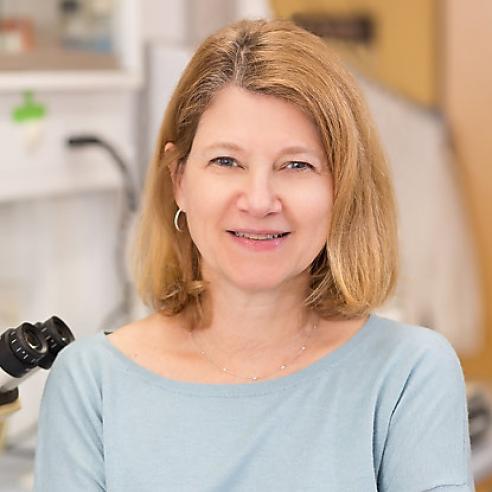Immune Cell Clues To Age-Related Macular Degeneration

Rajendra S. Apte, MD, PhD, Washington University in St. Louis School of Medicine, received a 2004 RPB Career Development Award to explore the role of the immune system in the development of leaky bloody vessels (choroidal neovascularization) in wet age-related macular degeneration.
An RPB researcher has found that the age of immune cells, called macrophages, may be key in determining whether damaging blood vessels will form beneath the retina and contribute to vision loss in age-related macular degeneration. A better understanding of how these macrophages work can provide potential targets for therapies to slow or even reverse vision loss. The findings are reported in the November issue of the Journal of Clinical Investigation. Read the full press release.
Age-related macular degeneration is the leading cause of blindness in the United States in people over the age of 50. It accounts for more than 40 percent of blindness among the elderly in nursing homes, and as baby boomers get older, the problem is expected to grow, with at least 8 million cases predicted by the year 2020.
November 2, 2007
Related News: Macular Degeneration

Research to Prevent Blindness and Association of University Professors of Ophthalmology Announce 2025 Recipient of RPB David F. Weeks Award for Outstanding Vision Research
Maria Bartolomeo Grant, MD, is recognized for ground-breaking contributions to the field of vision research.

Research to Prevent Blindness and Association of University Professors of Ophthalmology Announce 2024 Recipient of RPB David F. Weeks Award for Outstanding Vision Research
Patricia Ann D’Amore, PhD, MBA, is recognized for ground-breaking contributions to the field of vision research.

Research to Prevent Blindness Marks $400 Million in Funding to Advance Eye Disease Research
RPB funds a new round of researchers and hits a milestone in supporting vision-related breakthroughs.

RPB Funding Helps Researchers Revive Light-Sensing Cells in Organ Donor Eyes
This ground-breaking research accomplishment will open new doors for research on neurodegenerative diseases like AMD.

Recording available: RPB webinar on Dry AMD and Geographic Atrophy
RPB grantees provide expert insight on geographic atrophy and dry AMD as part of the "Lunch & Learn" series.

Join Us for AMD Awareness Month
Join RPB and Apellis Pharmaceuticals for a virtual event on Feb. 25 to learn about cutting-edge research into geographic atrophy and dry AMD.
Subscribe
Get our email updates filled with the latest news from our researchers about preventing vision loss, treating eye disease and even restoring sight. Unsubscribe at any time. Under our privacy policy, we'll never share your contact information with a third party.
| General Info | Grants | News & Resources |



